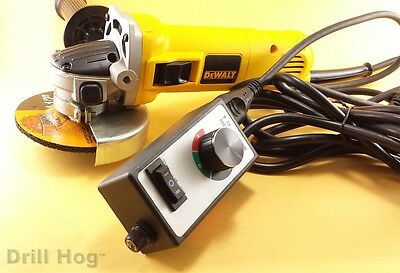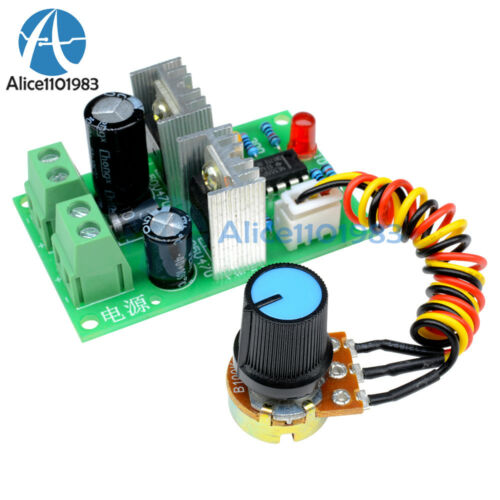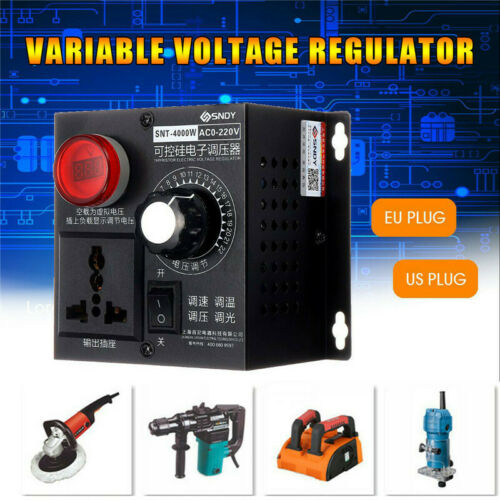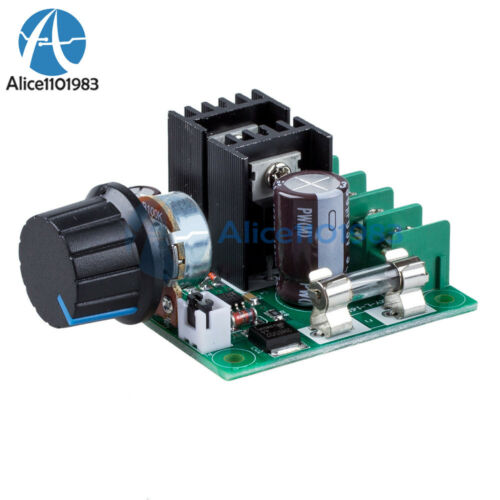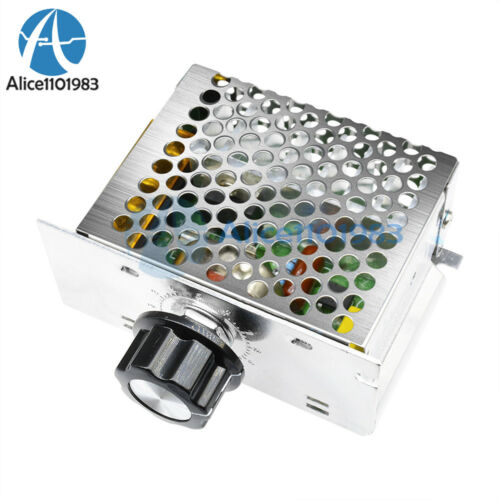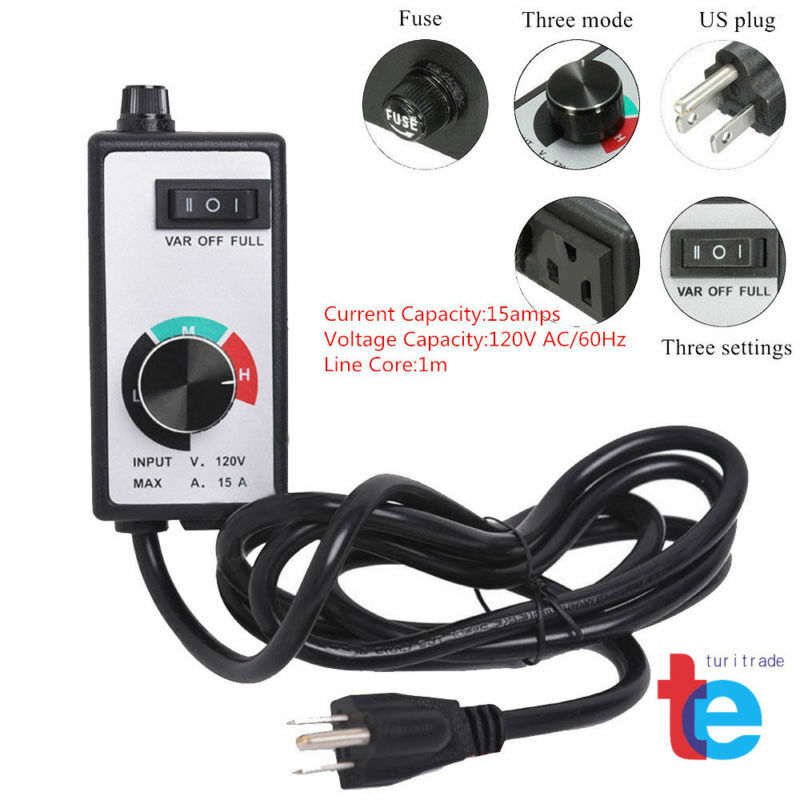-40%
10 PCs DC 6-30V 12V 24V 8A PWM Motor Speed Controller W/ Digital Display Switch
$ 63.35
- Description
- Size Guide
Description
Ship from USFast and Free Delivery
10 Pieces
Features:
• CCM5D DC Motor Speed Regulator controls the speed of a DC motor by adjusting Pulse-Width-Modulated (PWM).
• Large 0.56 inch 3-digit LED display numbers allow viewing under the most adverse conditions.
• The display range of 3-digit LED display is “000”-“100”. ( For example, displayed “60”, it means that the PWM output duty cycle is 60% )
• Input supply voltage range is 6V-30V DC
• PWM frequency is 16kHz
• Adjustable speed range is 0%-100%.
• Suitable for the DC motor (or DC load) within 5A, Peak current 8A.
• Incorporate a push key. Push closed, and then push open.
• Item size: 3.1*1.6*0.9 inches.
• Net weight: 2.1 ounces
Operating instruction:
WARNING:
Before you attempting to wire the controller, make sure power is off.
DO NOT REVERSE POSTIVE AND NEGATIVE POWER LOADS.THIS WILLDAMAGE THE CONTROLLER.
TO CHANGE MOTOR DIRECTION, INTERCHANGE THE POSITIVE AND NEGATIVE WIRES OF MOTOR.
1. Connect wires refer to the “wiring diagram”.
2. Turn on the power, and adjust the potentiometer.
3. The LED display displays the PWM output duty cycle.
4. Push the key, the controller closed, push it again, the controller open.
Package Including:
10 x DC Motor Speed Controller
What is the PWM?
Pulse-width modulation (PWM)
is a modulation technique used to encode a message into a pulsing signal. Although this modulation technique can be used to encode information for transmission, its main use is to allow the control of the power supplied to electrical devices, especially to inertial loads such as motors.
The average value of voltage (and current) fed to the load is controlled by turning the switch between supply and load on and off at a fast rate. The longer the switch is on compared to the off periods, the higher the total power supplied to the load.
The PWM switching frequency has to be much higher than what would affect the load (the device that uses the power), which is to say that the resultant waveform perceived by the load must be as smooth as possible. Typically switching has to be done several times a minute in an electric stove, 120 Hz in a lamp dimmer, from few kilohertz (kHz) to tens of kHz for a motor drive and well into the tens or hundreds of kHz in audio amplifiers and computer power supplies.
The term
duty cycle
describes the proportion of 'on' time to the regular interval or 'period' of time; a low duty cycle corresponds to low power, because the power is off for most of the time. Duty cycle is expressed in percent, 100% being fully on.
The main advantage of PWM
is that power loss in the switching devices is very low. When a switch is off there being practically no current, and when it is on and power is being transferred to the load, there is almost no voltage drop across the switch. Power loss, being the product of voltage and current, is thus in both cases close to zero. PWM also works well with digital controls, which, because of their on/off nature, can easily set the needed duty cycle.





